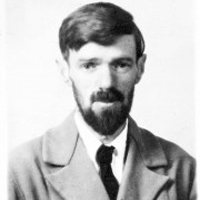Piano by David Herbert Lawrence: Summary and Critical Analysis
This poem Piano is about a fully grown adult recalling about the past. In this poem 'piano' serves as a metaphor of nostalgia. The poet may be trying to say that the function of music is to release us from the tyranny of conscious thought. Every man whether he is old or young- wants to listen to music reminds him of his happy memories of the past and makes him free from the trouble of the present.

David H. Lawrence (1885-1930)
In the evening there are two persons sitting in the room: a man and a woman. The woman is a pianist and singer. The man is the poet himself. The woman is playing on the piano and singing at the same time. Her song takes the poet back to his early childhood. He supposes that he is a very small baby sitting under the piano.
His mother is singing and he is pressing her feet. But she does not feel disturbed by her son’s behavior. She smiles at him and goes on playing. The poet knows that it is his romantic past. He wants to live in the present facing the reality. But the woman is very clever at singing. Her song is so sweet and her playing is so skillful. The poet wants to control himself, but he cannot. This time he goes back to his boyhood. He supposes that he is in his warm and comfortable room. It is very cold outside. It is Sunday evening (holy day). All his family members are there. They are singing hymns. The piano is guiding them.
Now the song has done its task, that is, to take the poet back to the happy past. He does not like to listen to the music. He wants to become lost in his happy memory. He likes to forget the present completely. Therefore, he feels that the woman’s song is the shout. Her music is no longer sweet. It is useless for her to play the piano with deep feelings. He is very happy with his childhood memories. Now he does not like to become a man. He throws his manhood and begins to cry like a child.
Related Topics
Cocksure Women and Hensure Men (Essay)
The Rocking-Horse Winner (Short Fiction)
Snake: Summary and Analysis (Poem)
David Herbert Lawrence: Biography
 |
bachelorandmaster.com |